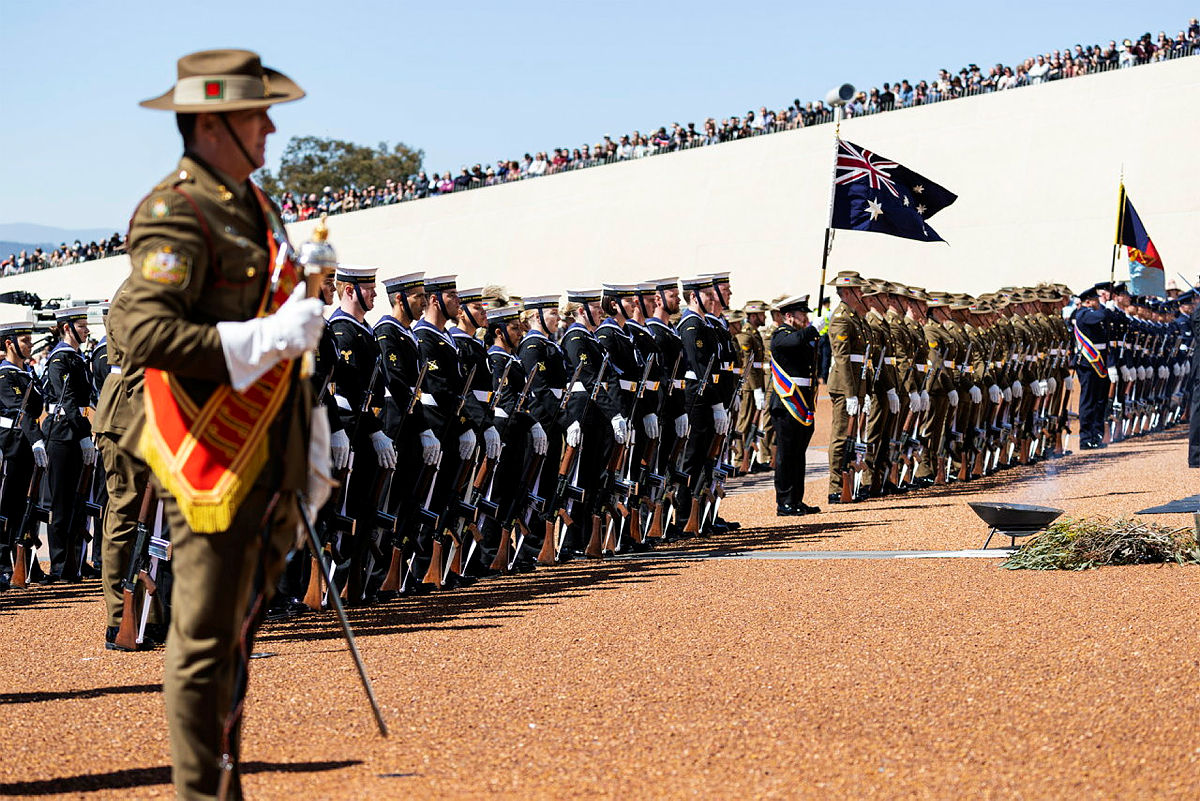
Tomorrow afternoon, the Australian Parliament’s Joint Standing Committee on Foreign Affairs, Defence and Trade will hold a public hearing for its inquiry into international armed conflict decision-making. In our submission (number 86) to the committee, made in a personal capacity in line with ASPI’s charter, we argue that decisions about the deployment of the Australian Defence Force should remain the prerogative of the government, acting in cabinet in accordance with the constitution and longstanding precedent. While precedents aren’t everything, this is one that is worth continuing.
Parliament has a crucial role to play in holding the government to account, and we encourage the strengthening of practices and conventions to facilitate that. But parliament should not compel the government to provide pre-notification of ADF deployments. Nor should parliament have decision-making power over the ADF’s engagement in conflict.
A nation’s defence force is a potent symbol of its sovereignty. In our political system, effective civil–military relationships for accountability and oversight are enshrined in Defence’s leadership diarchy at the departmental level, and in ministerial control and cabinet decision-making at the political level.
This inquiry is the latest stage in a long-running debate. Since 1985, there have been several legislative efforts, first by the Australian Democrats and then the Australian Greens, to revise the exclusive power of the government to commit Australia to war. The focus has been on revising the Defence Act 1903 to give parliament a vote over certain overseas deployments of the ADF. Parliament has consistently rejected these bills.
However, this inquiry is focused on a different set of issues to parliamentary approval. Fulfilling a pledge in the Labor Party’s national platform, Deputy Prime Minister and Defence Minister Richard Marles asked the committee to focus its inquiry on four areas:
- the approach of similar Westminster system democracies around the world
- parliamentary processes and practices, including opportunities for debate to provide greater transparency and accountability on the deployment of the ADF
- the security implications of pre-notification of ADF deployment that may compromise the safety of ADF personnel, operational security [or] intelligence and/or have unintended consequences
- any related matters.
In his referral letter to the committee’s chair, Marles was clear that existing government decision-making prerogatives ‘are appropriate and should not be disturbed’. We agree with this. Defence’s submission (number 110) to the inquiry details why this is the case. In short, this inquiry is not intended to rehash old debates about parliamentary approval.
We accept that an understanding of processes in other democracies is important, but comparisons are fraught with the risk of misinterpretation and false equivalence. Other systems should be neither ignored nor copied. In this regard, we agree with the majority report of the Senate Foreign Affairs, Defence and Trade Legislation Committee, issued at the conclusion of its related inquiry in 2020–21.
Debate in parliament on security matters is a vital part of Australia’s democratic system. As Marles and others, including Labor MP Josh Wilson, who is a member of the committee, have pointed out, such debate has parliamentary precedent. We are open to the case advanced by ASPI senior fellows Graeme Dobell (submission number 92) and Anthony Bergin (number 14), among others, that these precedents could be more clearly codified so the government understands parliament’s expectations for regular updates on ADF deployments. However, the government must retain discretion to withhold information where there is good reason, such as around the deployment of special forces, submarines and surveillance aircraft or to protect our international partnerships.
We oppose any change in the law that would require the government to pre-notify parliament about ADF deployments. That would put ADF personnel at risk and damage Australia’s national security, weaken our reliability in the eyes of our allies and partners, give advantages to our adversaries, and harm deterrence, which is an essential component of maintaining peace in the Indo-Pacific. Military strategy may depend for success and safety on the elements of strategic surprise and operational deception. Pre-notification requirements would undermine a central tenet of both strategy and operations.
Parliament has recognised these risks when it has looked at these issues previously. Because the security threats we face have only become more complex, including through advanced technology, espionage and foreign interference, the risks of pre-notification have only worsened.
Although the terms of reference for the inquiry do not include decision-making powers, given the scope to consider related matters, it is prudent to make clear our opposition to any change to the government’s exclusive power to decide whether and how to deploy the ADF. Such a requirement would either wholly debilitate Australia’s capacity to serve as a credible ally and partner or be rendered null and void by virtue of its impracticality.
Australia is facing the most challenging strategic circumstances since World War II. The Australian people must have confidence that parliament will play its role fully in the robust national debate about how to defend our country, but our national security depends on leaving government decision-making powers unchanged.

